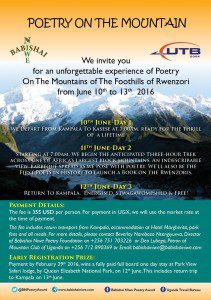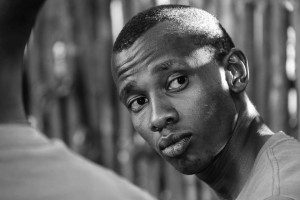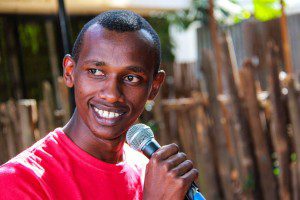Babishai Niwe Poetry Foundation, together with Uganda Travel Bureau, wants to take you on a poetry journey that will never end. Poetry On The Foothills of The Mountains of The Moon. From June 10th to 12th in 2016, we will leave Kampala and start our trek from Kilembe to the Rwenzori ranges. It’s about poetry and you, poetry and nature, poetry on the mountain. Let your inner poet have an adventure. #Babishai2016
THE TREK
10th June 2016-Day 1
On 10th June 2016, we will depart from Kampala to Hotel Margherita in Kasese. Hotel Margherita, very highly recommended, is a poem itself, with views of the various Rwenzori ranges, sounds of birds chirping poetry in the mornings and very well trained and warm staff.
11th June 2016-Day 2
At 7:00am on 11th June 2016, we will depart from Rwenzori Trekkers to begin our extraordinary voyage. Using the Kilembe entrance point, we will set off from the Rwenzori Trekkers Hostel and walk for a distance of 2.2km (about 45 min) to the park gate at the UWA post. This will be at a height of 1,725m on the incredible Mountains of The Moon.
The Poetry-where nature will turn its focus on us as we read our poetry
We’ll continue the walk for two and a half hours, up the trail up to the Lunch stop at a height of 2,570m. At this height, nature will turn its focus on us as we take in the breathtaking view. This is the point where we will break for lunch and then hold our poetry session.
During lunch, our moderator from the Babishai Niwe Poetry Foundation, will moderate the poetry session while overlooking one of the most scenic environments in Uganda, the Rwenzori ranges. Poems and spoken word pieces will come from every point of inspiration, some spontaneous. With the backdrop of the Rwenzori ranges, the sounds of birds, the sky within our grasp and the future in our hands, Poetry On The Mountain will be an experience like never before.
12th June 2016:
Return to Kampala, satiated and blest!
Our Guide-Deo Lubega, Patron of The Mountain Club of Uganda
We will be guided by capable and experienced Deo Lubega, Patron of the Mountain Club of Uganda, who has climbed Mt. Rwenzori 6 times and Mt. Muhavura 4 times. His experience and stories will not only make it worthwhile but lead you to reach for something higher within yourself.
The Fee:
Each individual will pay 355 USD, which will include the following:-
Registration, Park fees, Transport, Accommodation, Breakfast, Lunch, Dinner, Service provider charges (porters and guides)
Early Registration Prize:
Those who pay by February 29th 2016, will receive a fully paid for day at the Park View Safari Lodge overlooking Queen Elizabeth National Park, on June 13th 2016.
For payment details and inquiries, please contact:-
Babishai Niwe Poetry Foundation
Director Beverley Nambozo Nsengiyunva
Tel: +256 751 703226
Email: babishainiwe@babishainiwe.com
Twitter: @BNPoetryAward
If you neither require accommodation nor transport, you will pay 250,000/- registration and service fee.


